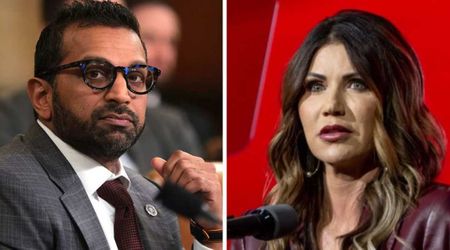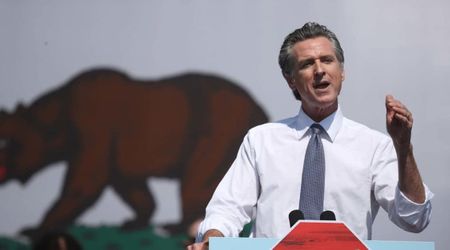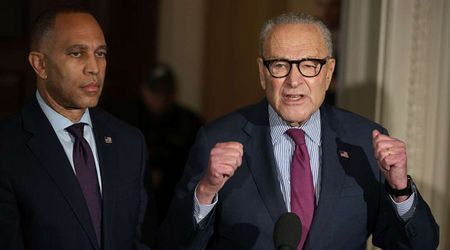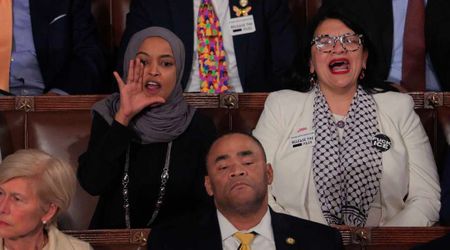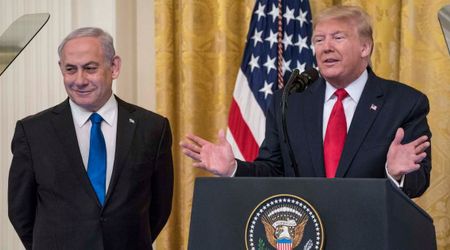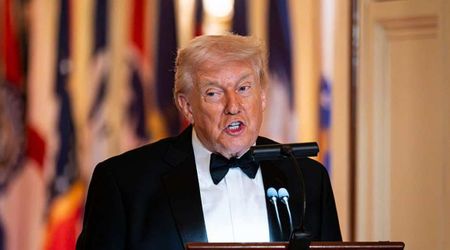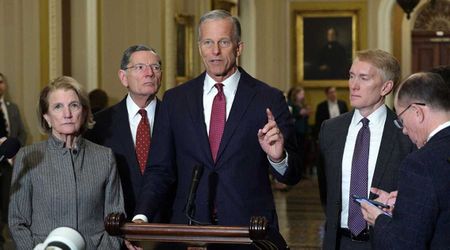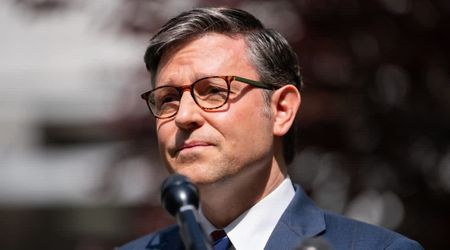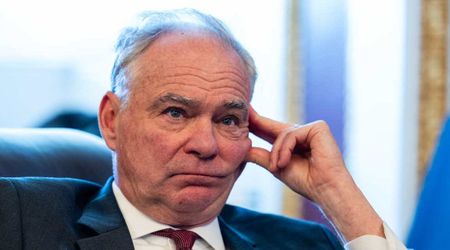8 celebrity commencement speakers whose speeches caused an uproar: From Barack Obama to Jerry Springer
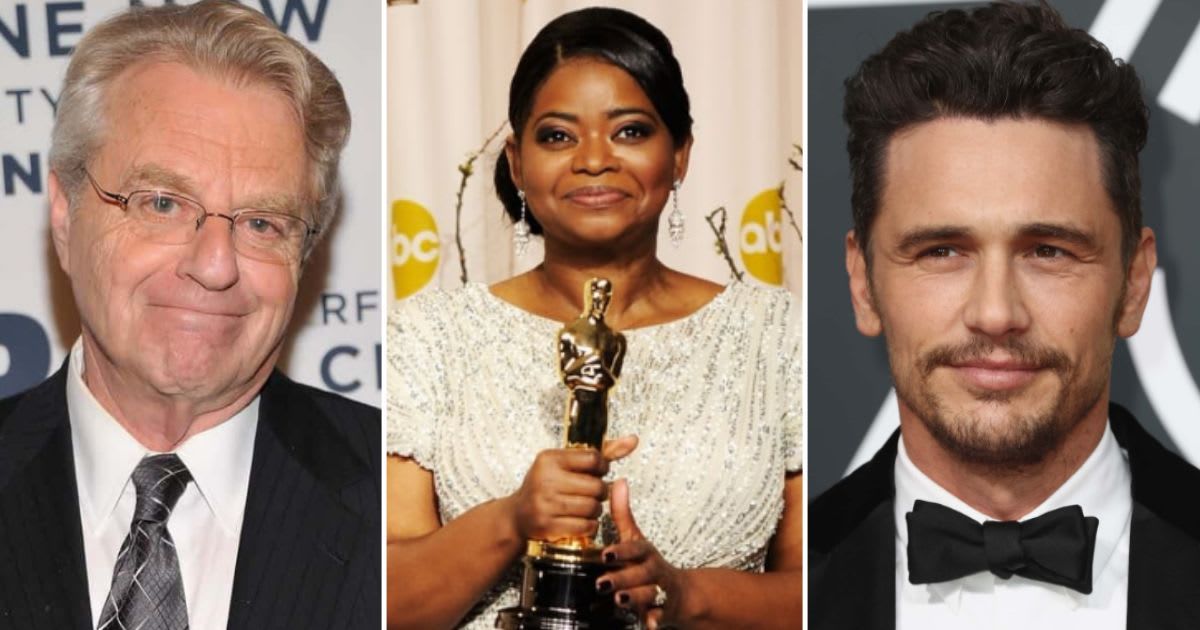
8 public figures whose commencement speeches caused severe backlash

Kansas City Chiefs kicker Harrison Butker stirred up a social media storm with controversial comments about gender roles and the LGBTQIA+ community during a recent graduation speech. The 28-year-old athlete delivered the commencement address for Benedictine College’s graduating class in Atchison, Kansas on Saturday, May 11. Butker’s remarks specifically targeted the women graduates, saying, “For the ladies present today, congratulations on an amazing accomplishment. You should be proud of all that you have achieved to this point in your young lives. I want to speak directly to you briefly because I think it is you, the women, who have had the most diabolical lies told to you.” He went on to say that although "some" of the women in the audience "may go on to lead successful careers in the world," he "would venture to guess that the majority of you are most excited about your marriage and the children you will bring into this world." Isabelle Butker, Harrison's wife, would be the "first to say that her life truly started when she began living her vocation as a wife and as a mother," according to the football player. "Homemaker" is "one of the most important titles of all," he claimed. Furthermore, Butker lambasted Pride Month and the LGBTQIA+ community, hailing “the true God-centered pride that is cooperation with the Holy Ghost to glorify him” as opposed to “the deadly sins sort of Pride that has an entire month dedicated to it.” Harrison Butker’s bewildering remarks during his commencement address prompted many, including Benedictine College’s students to speak out against him and his downright despicable worldview. Here are 8 celebrity commencement speakers whose speeches caught the ire of the general public and students alike.
1. Barack Obama

In 2009, protests over abortion rights greeted then-President Barack Obama during his commencement speech at Notre Dame University. A protester was ejected from the event for yelling "baby killer" during Obama's address. "Maybe we won't agree on abortion, but we can still agree that this heart-wrenching decision for any woman is not made casually," the 44th United States President said in his speech, according to The New York Times. "It has both moral and spiritual dimension. So let us work together to reduce the number of women seeking abortions. Let's reduce unintended pregnancies. Let's make adoption more available. Let's provide care and support for women who do carry their children to term." Several students chose to skip the official ceremony and instead organized an alternative commencement, donning graduation caps decorated with crosses and baby footprints.
2. Rudy Giuliani

Former New York City mayor Rudy Giuliani's commencement speech at Syracuse University in 2002 sparked controversy as some students stood with their backs turned, raised fists, and wore red armbands to symbolize "the great amount of bloodshed that came from African Americans while Giuliani was in office," as reported by Syracuse's student newspaper The Daily Orange. Additionally, some faculty members of Syracuse's African-American studies program boycotted the event in protest. These protests were prompted by a Justice Department report alleging that the New York Police Department had engaged in racial profiling during Giuliani's tenure, a claim that Giuliani vehemently denied in October 2000. Giuliani, in his response to the protests, stated, "Protests don't bother me at all. People have every right to protest, and I have very strong opinions. People disagree with me, and they have every right to do that," as reported by The Daily Orange.
3. Jerry Springer

When Northwestern University School of Law selected Jerry Springer to speak to the class of 2008, some students weren't overly excited about it. According to The Daily Northwestern, a student wrote on the legal news site Above the Law, "Although we understand that in some respects Mr Springer represents the best (and also the worst) of American First Amendment rights, we do not believe that he is worthy of addressing the Class of 2008.” Springer, who graduated from the school in 1968, received a standing ovation from the audience following his address, according to the American Bar Association. "To the students who invited me — thank you. I am honored. To the students who object to my presence — well, you've got a point," Springer remarked, adding. "I, too, would've chosen someone else. But once asked it would've been kind of arrogant, or at least unappreciative, for me to have said 'no'. So, here I am." He went on to say, "I've been lucky enough to enjoy a comfortable measure of success in my various careers, but let's be honest, I've been virtually everything you can't respect: a lawyer, a mayor, a major market news anchor, and a talk show host. Pray for me. If I get to heaven, we're all going."
4. Barbara Bush

In 1990, a group of 150 students from Wellesley College staged a protest against the commencement speech delivered by First Lady Barbara Bush. The students, attending the prestigious women's college, expressed their objection to Bush's selection as the commencement speaker through a formal petition. They cited her decision to drop out of Smith College to marry and her primary recognition as the wife of a prominent politician as their reasons for protest. Per The New York Times, then-President George H.W. Bush said in response to student protests, "I think these young women can have a lot to learn from Barbara Bush and from her unselfishness and from her advocacy of literacy and of being a good mother and a lot of other things." In the end, Barbara Bush delivered the commencement speech and made some relevant observations. "And who knows?" she told the crowd of students. "Somewhere out in this audience may even be someone who will one day follow in my footsteps, and preside over the White House as the president's spouse. I wish him well!'"
5. Condoleezza Rice

Following a sit-in by students, former Secretary of State Condoleezza Rice canceled her speech at Rutgers University's 2014 commencement. Due to Rice's involvement in the Iraq War, both students and faculty objected to the institution selecting her as the guest speaker. Rice declared she was "unwilling to detract" from the commencement ceremony by being a distraction in a statement that was uploaded to her Facebook page. She wrote at the time, "Commencement should be a time of joyous celebration for the graduates and their families. Rutgers' invitation to me to speak has become a distraction for the university community at this very special time."
6. Octavia Spencer

Octavia Spencer's commencement speech at Kent State in 2017 caused controversy when it was revealed that she was compensated $100,000 for her 20-minute address. While some colleges opt not to pay their graduation speakers and instead offer honorary degrees, others do provide payment. According to Cleveland.com, Spencer's contract covered airfare for two, accommodations, meals, and the $100,000 speaking fee. The university justified its choice to involve Spencer at the graduation ceremony by saying that "it is common to bring in nationally recognized speakers with a powerful message that will last long after the ceremony concludes." The statement read, "Octavia Spencer's personal journey as one of seven children whose mother was a maid in Alabama, to attend and graduate from college will resonate with our graduates as they themselves accept the challenges and opportunities that await them following graduation." The statement continued, "We know she will inspire the audience with a message that encourages each graduate to be their authentic selves as they set out to change the world. We are delighted to welcome her to Kent State."
7. James Franco

In 2009, a Facebook page was created by UCLA students protesting James Franco's selection as their graduation speaker. In 2008, Franco graduated from UCLA with a degree in English. In the college newspaper, a student stated that "we don't feel he is as esteemed as a commencement speaker of UCLA's caliber should be." In opposition to his speech, students also started a Facebook page where they referred to him as an "average student," as reported by Entertainment Weekly.
Franco ultimately had to cancel his address due to his busy filming schedule.
8. Rapper Common

Rapper Common was selected as the commencement speaker for Kean University's 2015 graduation ceremony in New Jersey. However, his selection was met with criticism from the state's police officers, leading to his withdrawal. Common, who received an Academy Award in 2015 for his song ‘Glory’ from the movie ‘Selma', was announced as the commencement speaker via Kean University's Twitter account, but a university spokesperson later clarified that the announcement was premature. Kean spokeswoman Susan Kayne claimed, "The students expressed interest in Common because he composed the Oscar-winning song 'Glory' with our prior commencement speaker John Legend." She further explained, "While we respect his talent, Kean is pursuing other speaker options." Renowned for his socially conscious lyrics, Common has been a controversial figure due to his 2000 track 'A Song for Assata', which is about Black Liberation Army member Assata Shakur. Shakur, also known as Joanne Chesimard, was convicted of killing a New Jersey state trooper in 1977 and later escaped to Cuba. Representatives of New Jersey law enforcement expressed disapproval of Kean University's initial choice of Common as the commencement speaker. Steve Jones, spokesman for the New Jersey State Police, told The Record, "We can't control who the university invites to speak. However, we will continue our efforts to make the public aware of Joanne Chesimard's escape and life on the lam and continue to seek her return to New Jersey and justice."

